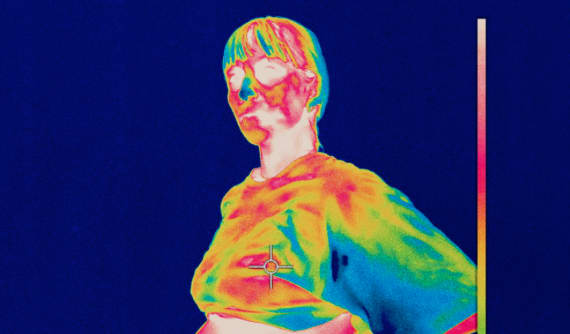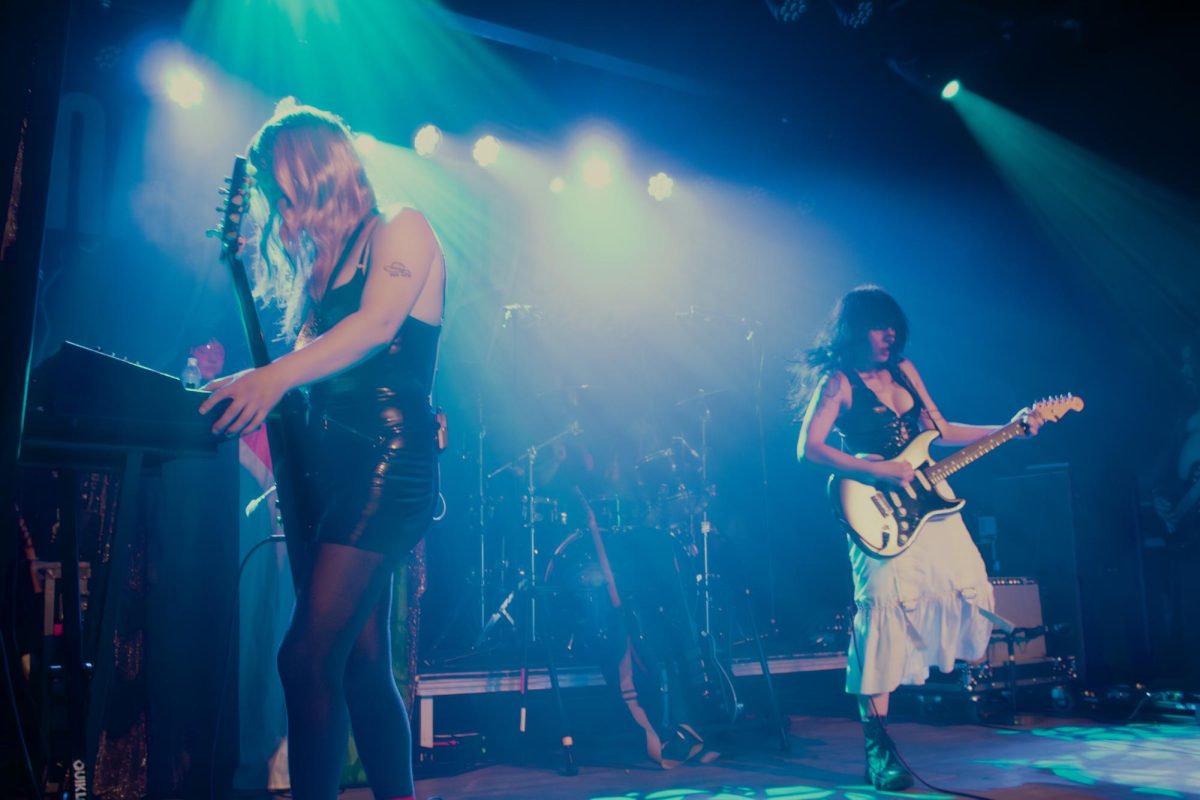Mutineer Music | Episode 5: 2010s Anti-Pop

April 23, 2021
To understand that which is counter culture or anti mainstream, one must understand what the status quo in question is. If there’s nothing to rebel against, then a rebellion will cease to be anything more than the norm. In this way, anti-pop exists only because of the existence of pop itself in all its sugary cookie cutter glory. Anti-pop exists outside the realm of definition. It’s a crooked and cracked mirror reflecting that which has reached the highest echelons of pop in the public sphere. Pop’s (and subsequently anti-pop’s) existence is a culmination of years of excessive radio play, stars built on image rather than talent and creativity, and a sound that has been boiled down to a formula—literally.
Bogged down by the seemingly never ending list of pop stars dominating the charts, the air waves and pop culture, up-and \-comers looked to the 2010s to be their new horizon. While the hard work and massive success of super stars such as Britney Spears, Avril Lavigne, Justin Timberlake, Alicia Keys, Mariah Carey and many more should not be discounted, their dominance had formed a creative rut in the industry for some time.
Anti-pop’s inception and future climb to popularity can be thanked in large part to the surge of influence the internet began to have on American culture. While the World Wide Web had become widely accessible in the 90s, it only increased its accessibility exponentially by the early 2010s. Napster, Spotify, Apple Music, SoundCloud, Pandora and other music streaming services created earlier where now hitting their stride—it was now easier than ever to come from nothing and be something. With the click of a button an artist’s song could be available to millions of listeners eager to find the next big thing.
This new found access to the public ear is likely what caused the stir that birthed the anti-pop movement. Tired of the same old pop songs controlling your daily life? Go make your own music. In a way, anti-pop felt like the spiteful response of a million unknown artists collectively saying, “Fine. We will.”
Hungry new faces in the music scene such as BROCKHAMPTON, Joji, and Rex Orange County burst onto the scene in late 2016/early 2017. Each of these fresh acts presented the general public with sounds styles and personas unheard by the charts thus far.
BROCKHAMPTON made its big splash with three back-to-back albums all released in 2017. These releases were later labeled as BROCKHAMPTON’S SATURATION era. Each of these albums turned heads with their own wide range of genres, tones and sounds. And of course, the irresistible hype and youthful vigor of America’s hardest working boy band was a sight to behold. The BROCKHAMPTON collective was an entirely new blend of talent, featuring 13 unique artists never before heard by the mainstream. Mixing gritty bars and thumping beats with honey smooth ballads and catchy hooks, there was something to be loved about all avenues of the SATURATION trilogy. It defied what should logically be popular and curated new horizons for those who had not yet found their scene.
Encapsulating the more melancholy space of the anti-pop sound, Joji, formerly known as internet icon Filthy Frank, released his debut EP, In Tongues, in 2017. Fans of Filthy Frank were skeptical of the creative’s new musical endeavor following the explicit and offensive Pink Season released by Joji’s alter ego Pink Guy in the same year. However, the gloomy and deeply atmospheric lo-fi style of Joji’s songs quickly swept his fans and new listeners off their feet. While In Tongues enjoyed critical praise and impressive streams, Joji’s true explosion into the anti-pop hall of fame came with the equally disenchanted musings of BALLADS 1. This album featured two of Joji’s most popular singles: the disturbingly cinematic “SLOW DANCING IN THE DARK” and the beautifully cynical “YEAH RIGHT.” Both hold more than 500 million streams on Spotify and have seen massive use on the video sharing app Tik-Tok.
Rounding out the brighter side of Anti-pop, singer songwriter Rex Orange County presents a bare bones approach to wistful and addictively uplifting Anti-pop. Having released his first single “Uno” in 2016, Rex Orange County didn’t feel the wave of success in the anti-pop sphere until the release of “Loving is Easy,” a joyous duet alongside Benny sings. This single catapulted Rex up to the podium of anti-pop fame, with his laid back optimism creating a much needed light in a sound so filled with aggressiveness and damper moods. Today, Rex Orange County boasts over 10 million followers on Spotify, with his popularity only growing as the influence of anti-pop continues to expand in the 2020s.
These artists are only a few staples of the anti-pop sound, and even with the immense diversity of genres their music covers, they still barely encapsulate the depth of the anti-pop world. Acting not as a new coat of paint on pop music but rather disassembling the genre itself, anti-pop exists as a necessary antithesis. While its existence originally was tailored to what the pop scene was at the time, anti-pop has since branched out from its origins and become something new entirely—a shapeless entity that harbors all who wish to not be defined. With the internet at their fingertips, artists who were once thought to have no chance of reaching the masses suddenly now had a way to find success and a genre that was happy to take on their eagerness and creativity.
Anti-pop comes in a mass variety of different shapes and sizes. So many, that it’s nearly impossible to curate a definitive playlist that encapsulates the sound in any way that feels complete. So, with this playlist, I simply tried to compile some of the most popular examples of the genre without compromising what makes anti-pop so unique.
Sources cited:
https://bdspotlight.com/arts-entertainment/2018/08/10/the-rise-of-anti-pop/





























